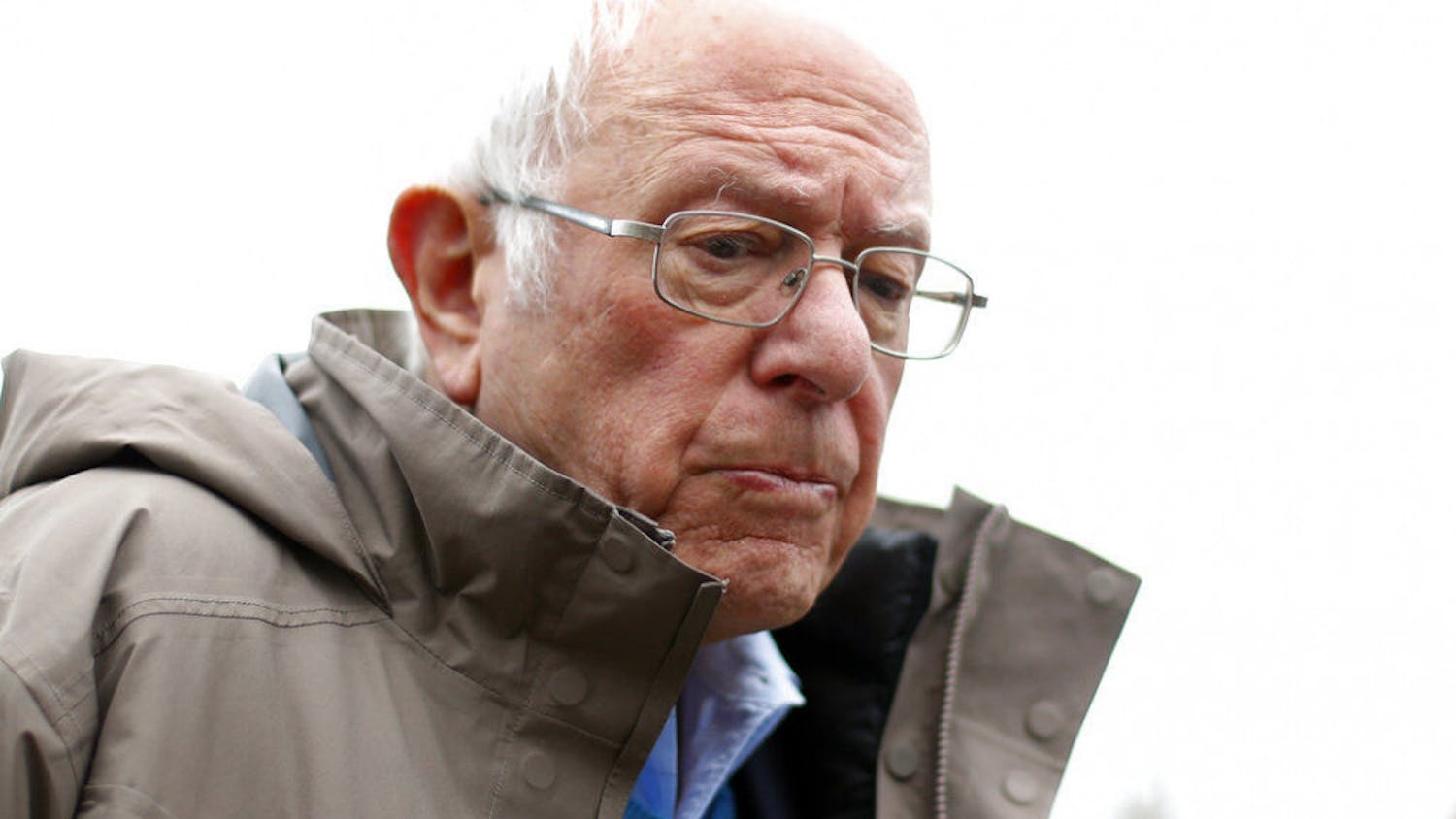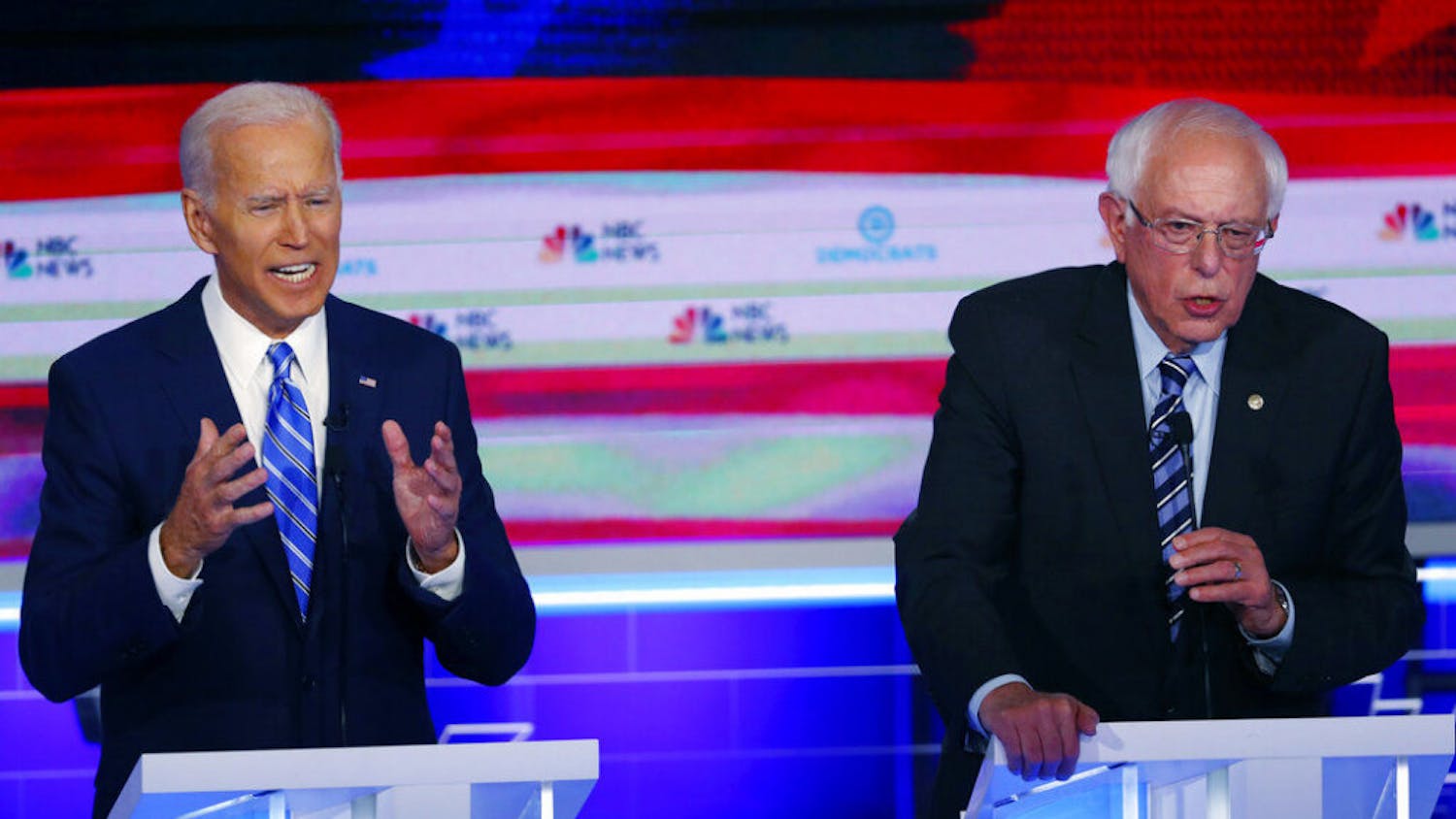After his large win in New Hampshire, America seems to be “feeling the Bern” like never before. Many, including Hillary Clinton, had never thought that Sen. Bernie Sanders, I-Vt., could or would make it this far; and yet, here we are. Sanders is running a campaign espousing progressive policies that would ostensibly better this country, which has garnered largely positive reactions to his candidacy. However, good vibrations aside, it is important he receives valid criticism just as much as any other candidate in the race.
Speaking personally, I absolutely adore Sen. Sanders, and I can attest to his widespread appeal. To a disillusioned generation that seems to want to make political apathy a pastime, Sanders is exciting precisely because he is not like the average politician. Between the oddities — his crazy hair and the folk album he recorded decades ago — and the issues of larger import — his support of social and racial equality goes all the way back to being arrested for civil disobedience during the civil rights movement — Sanders embodies many values that young, liberal Americans hold dear.
With that said, being a swell guy has never earned anyone a ticket to the White House.
This isn’t some slavish essay about how awesome and perfect Clinton is; as many do, I have several issues with her. But what few seem to be willing to acknowledge is that Sanders’ platform positions on the campaign trail are policies that would be quickly torn up in Washington, D.C. on day one.
One of the key policies put forth by Sanders concerns a single-payer healthcare system such as those in European countries and Canada. We could argue, as many conservatives do, this would be difficult to transfer into the pre-existing American healthcare system. But even if a such a policy were placed on the table in a Sanders presidency, it would still have to get through Congress. Now, I don’t know if many in my age group have taken a look at Congress lately, but it doesn’t paint a rosy picture as far as the prospects for progressive policies go.
We are living with a Republican Congress that has tried to repeal Obamacare at every chance it gets. Obamacare was difficult to pass with a Democratic majority back in 2010: No matter who the victor of 2016 will be, it is likely the Republicans will retain their control over the House. How could a hypothetical self-avowed socialist president push through policies when Republicans work against a moderate president?
Sanders is also extremely lacking in foreign policy experience. He consistently cites his vote against the Iraq War as a badge of honor and as his crowning achievement in the realm of foreign policy. This vote against the Iraq War is not only a point of pride for the Sanders campaign but has also been a useful way to attack Clinton for her support of it. Since 2002, Clinton has become far more experienced in the realm of foreign policy than any other candidate. As Marco Rubio put it, “If this election is a resume competition, then Hillary Clinton is going to be the next president.”
Being on the Armed Services Committee or the Committee on Foreign Affairs is a pretty significant step up from having cast a vote in Congress.
In the end, Sanders, like every other candidate, is the subject of easily refutable criticisms that are frustrating to explain away. In the end, one should vote for the candidate he or she feels has the best skills to handle the job. Speaking personally again, I think a Sanders administration would have much to learn in a short amount of time about foreign policy. After all, so did a certain governor from Texas, and look how that turned out.
Kevin Foster is a UF political science senior. His column appears on Thursdays.





